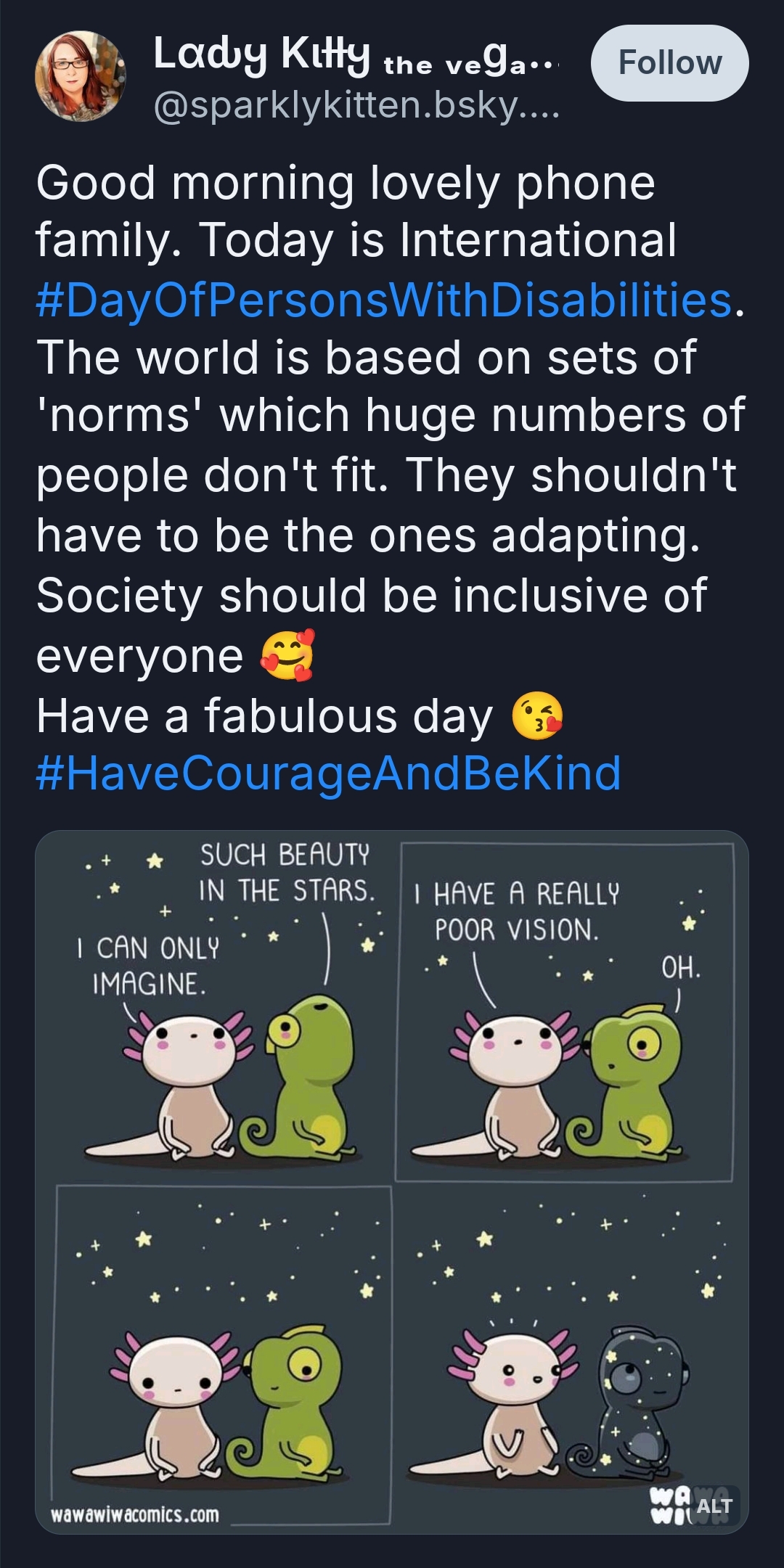this post was submitted on 03 Dec 2024
596 points (96.9% liked)
Microblog Memes
6036 readers
2149 users here now
A place to share screenshots of Microblog posts, whether from Mastodon, tumblr, ~~Twitter~~ X, KBin, Threads or elsewhere.
Created as an evolution of White People Twitter and other tweet-capture subreddits.
Rules:
- Please put at least one word relevant to the post in the post title.
- Be nice.
- No advertising, brand promotion or guerilla marketing.
- Posters are encouraged to link to the toot or tweet etc in the description of posts.
Related communities:
founded 1 year ago
MODERATORS
you are viewing a single comment's thread
view the rest of the comments
view the rest of the comments

I work in an accessibility-focused field and can say person-first verbiage is more important for those with visible/ serious conditions that society tends to focus on over them as a person.
The spirit is that you view them as a person, instead of a their condition. It might seem obvious, but imagine you have a very visible physical disability. People are always talking about your condition, asking you about it, it's the first thing people focus on when they meet you. As a person, you don't want your condition to define who you are. As an example, if you worked really hard to win a major award, would you prefer the headline "First Name Last Name Wins Award", or "Severely Autistic Person Wins Award"?
It's fairly nuanced, and within some groups (such as ASD) there is actually pushback against person-first. But then there's people that it really helps so it's more of a "just be chill and not a dick about things" kind of vibe. Kind of like pronouns where some people make a huge fuss whenever they're mentioned. In reality, it's more about just treating people with respect as well as not walking on eggshells around everyone.